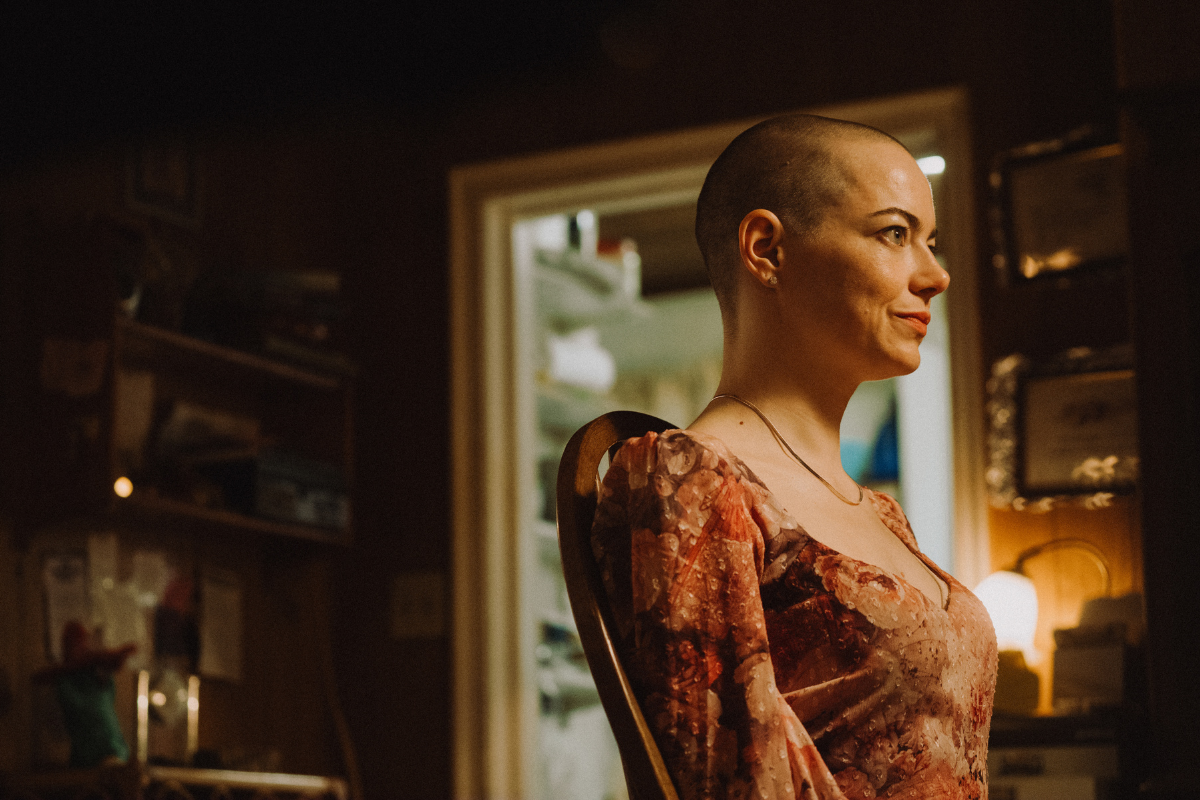WRITERS’ ROOM 101: Writers on Set – Please Don’t Feed The Actors
In today’s “Writers’ Room 101,” TV writer Eric Haywood discusses how much you should and shouldn’t share with your show’s actors.
Eric Haywood has spent over a decade writing for network and premium cable television series including ABC’s Private Practice, Showtime’s Soul Food, NBC’s Hawaii, and the Fox drama Empire. Follow Eric on Twitter at @EricHaywood.
Every television show is a collaboration. It takes hundreds of people – cast, crew, production office staff, network executives and many others – working together to successfully produce every episode. As an entry-level writer, you’ll rarely interact with most of these folks; some you may never meet at all. But you’ll definitely be spending some quality time with the actors.
Typically, when an episode is in production, the writer of that episode is released from the writers’ room and sent to the set, where said writer will oversee its filming (I’m using the term “oversee” very loosely here, as it implies that you’ll have far more authority on set than you really will). This is where you’ll work with the cast and a few key crew members, making sure the voice of the script is properly captured by the director. We’ll explore this process in greater detail in a future post.
For now, what you need to know is that when you’re working on set, it’s likely that you’ll hit it off with some (if not all) of the cast members. But no matter how chummy you and the actors might become, it’s imperative that you remember the Most Important Rule that I explained way back in the early days of this blog: What’s said in the room, stays in the room. And yes, this applies to the actors as well.
On some shows, the actors will actually come into the writers’ room a few weeks after the writers have been working on overall story arcs for the season to discuss (in a very roundabout manner) what’s in store for each actor’s character. Maybe you’ll even get some insight from an actor that helps spark ideas for their character. Between those meetings and the time you’ll spend on set, it’s likely that you may end up befriending a few cast members. Absolutely nothing wrong with that; like I said, you’re all collaborators, working towards making the best show possible.
But like most working relationships, there are boundaries that you’ll need to observe. And the first and most important boundary is: do not feed the actors.
Do not share the specifics of what’s in store for any character with the cast. Don’t even drop hints, even if they come right out and ask you. If something hasn’t appeared in an actual production draft of a script, and if you haven’t been expressly approved by the showrunner to reveal a particular thing… Just. Don’t. Do. It.
I point this out because it’s an easy mistake to make, especially for the newer writer. It’s not uncommon to slip into a casual conversation about the show, let your guard down, and start referencing things that are still on the drawing board for that actor’s character or for the show in general. If you do, depending on your showrunner’s mood when this happens, it could result in anything from a firm scolding to you being asked to clean out your office. Either way, it’s just not worth it.
Why? Because spilling secrets to the actors about what’s being planned can create all kinds of headaches on the show. And if the root cause of the problem can be traced back to you, well, you’re screwed.
It probably sounds like I’m picking on actors, making them sound like people hell-bent of ferreting out every last plot detail, and that’s truly not my intention. To the contrary, actors have a vested interest in the writing, sometimes even more than the writers themselves, because they’re the ones who have to go out there and bare their souls in front of the camera. They’re the “face” of the show, not you. Consequently, in addition to being focused on whatever script they’re currently shooting, actors are understandably curious about what the writers have cooked up for the next few episodes down the line, and sometimes for the whole season. After all, knowing where the story is going can help an actor make certain performance choices in this week’s episode that they can pay off in next week’s episode. Makes sense, right?
But here’s the thing: until the aforementioned production draft is released to the cast and crew, anything and everything the writing staff comes up with is subject to change. And those changes can happen based on conversations that take place in meetings and e-mail chains that you’re not privy to. Entire storylines can get wiped out at the last minute. Characters can get written into or out of episodes. So if you tell an actor on your show that the writers have cooked up this great story arc in which (let’s say) that actor will play her own long-lost identical twin sister, guess what? The actor’s only human, so once armed with this information, she may start making certain acting choices that she thinks will help lay the foundation for this big story twist that her character isn’t supposed to know is coming. So you’ve basically leaked information that never should’ve left the privacy of the writers’ room.
Okay. So let’s jump ahead a few weeks. For any number of reasons, the long-lost-twin storyline has gotten completely cut from the show. And one day the actor gets her script in which that story was supposed to appear. But it’s not there. The actor’s confused: “Why the hell did I do all that preparation, and now there’s no twin?” Maybe she loved that idea and was super-eager to play it. So she goes to the showrunner and start asking questions (or worse, complaining).
In a best case scenario, the actor would just shrug it off and says, “Ah, well. I really wanted to explore that story for my character, but I’m happy to just roll with whatever’s on the page.” But in a worst-case scenario (which is the one you should always be planning for), the actor blows a gasket. Or maybe she decides to bring production to a total standstill until her concerns can be addressed. Certainly, #NotAllActors will go to such diva extremes, but it’s not unheard of. And again: you won’t want to be the cause of this problem.
Keep in mind that your showrunner is juggling a million different variables at any given time, and one of them is the constantly-shifting decision-making process of deciding which plot details to share with the cast and when to share them (and who gets informed first). It’s simply not your place to screw up whatever delicate balance has been achieved.
As you work in various rooms, any number of wild ideas will get explored. Maybe two characters who always hated each other will hook up. Maybe a fan favorite will get killed off. Or maybe Actor A is being given a cooler, funnier, more challenging storyline than Actor B. Still, nothing’s final until it’s final, and putting this information into an actor’s head before it’s “ready for primetime” does far more harm than good.
I should also note that this isn’t just a rookie mistake. I’ve seen experienced co-executive producers get in hot water with showrunners for inadvertently sharing information with cast members that was still in the "What if...?" stage. So err on the side of caution and don’t do it. Nothing good can come of it in the long run. Actors aren’t your enemy, and you certainly shouldn’t see them as such. But until something’s actually written in a script that says “Production Draft” on the cover page, do yourself a huge favor and keep any knowledge of potential future storylines between yourself and the other writers. You’ll be glad you did.
- More articles by Eric Haywood
- Writers' Room 101: There's No 'I' in 'Staff'
- Balls of Steel: What Can Writers Learn from Actor Interviews?
Writing Scripts That Appeal to A-List Actors
TV Writers’ Room 101 by Eric Haywood: If you’ve ever wondered what goes on inside a television drama writers’ room, look no further. “Inside the Writers’ Room” will pull back the curtain and show you how “the room” functions, how ideas get pitched and stories get broken, how the writer functions on set when an episode he or she has written is being filmed, and more. This column is geared towards writers who are either actively seeking to break into television writing or have already landed their first job on staff and could use a little help navigating the unspoken do’s and don’ts. Twitter: @EricHaywood







